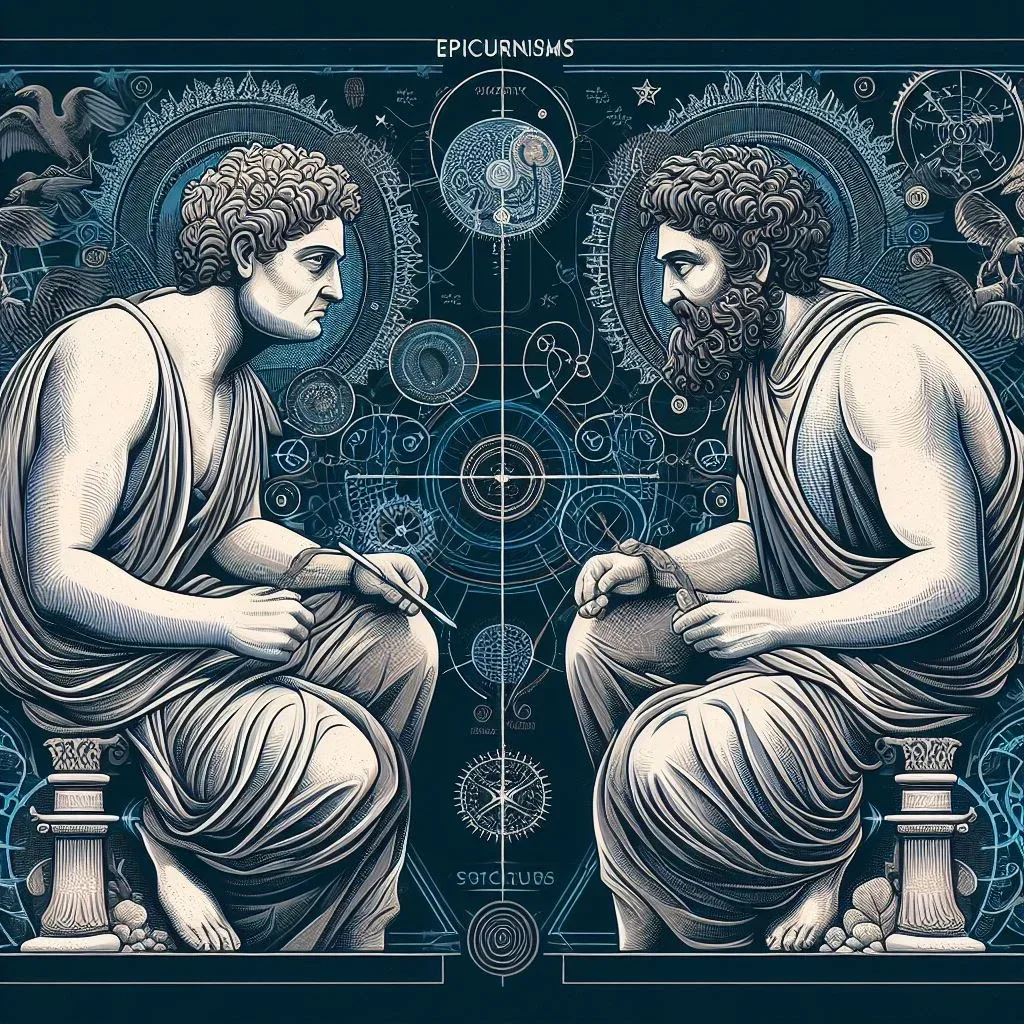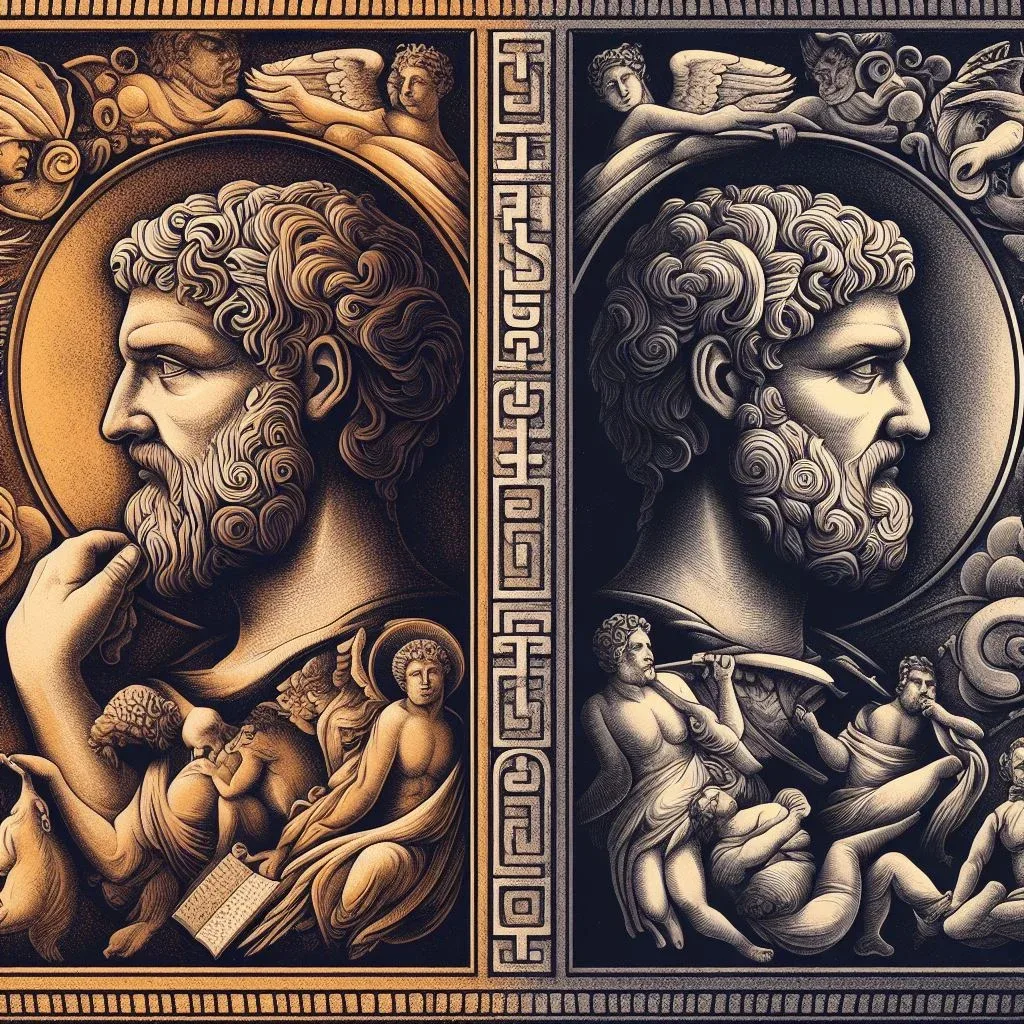Epicureanism and Stoicism are two of the most influential philosophies of antiquity, each offering a unique approach to the pursuit of wisdom, happiness, and meaning in life. Although both have roots in ancient Greece, these philosophies differ in their views on the nature of happiness, the role of emotions, and how to meet the challenges of human existence. In this blog post, we will explore in detail the similarities and differences between Epicureanism and Stoicism.

Epicureanism: The Search for Happiness Through Pleasure
Epicureanism, founded by Epicurus in the fourth century BC, places the search for pleasure at the center of its philosophy. However, Epicurean pleasure does not just refer to physical pleasure, but also mental and emotional pleasure. For Epicureans, happiness is achieved when physical and emotional pain is avoided and moderate pleasures are sought.

Main Elements of Epicureanism:
- Ataraxia: Mental tranquility is seen as the ideal state for the pursuit of happiness. Avoiding overeating and intense cravings contributes to ataraxia.
- Friendship: Epicurus emphasized the importance of friendships as a source of pleasure and emotional support.
- Epicureanism and the Search for Moderate Pleasure: Epicureanism does not promote excess, but rather moderation in the pursuit of pleasure. Excesses can lead to pain and suffering.
Stoicism: The Quest for Virtue and Wisdom
Stoicism, whose main representatives were Seneca, Epictetus and Marcus Aurelius, adopts a more austere view of happiness. For the Stoics, virtue is the highest good, and wisdom comes from living according to reason. They believe that the only thing truly under our control is our mind and our actions, and the rest of the world is beyond our power.

Main Elements of Stoicism:
- Internal control: Stoic philosophy emphasizes internal control over external events. Accepting what cannot be changed is crucial.
- Virtue: Virtue, including courage, justice, and wisdom, is the central focus of the Stoic life. The pursuit of virtue is the path to happiness.
- Indifference to Emotions: Stoics believe in remaining emotionally calm and unaffected by external circumstances.
Similarities Between Epicureanism and Stoicism

Despite fundamental differences, there are some notable similarities between Epicureanism and Stoicism:
- Emphasis on Self-Mastery: Both philosophies value self-discipline and control over passions and desires.
- Rejection of Consumerism: Both Epicureans and Stoics discourage the unbridled pursuit of material wealth and luxury.
- Importance of Friendships: Both philosophies recognize the value of friendships in the pursuit of happiness and emotional support.
Differences Between Epicureanism and Stoicism
- Nature of Happiness: While Epicureanism seeks pleasure as the source of happiness, Stoicism believes that virtue is the path to true happiness.
- Attitude Toward Emotions: Epicureans value positive emotions, while Stoics seek emotional indifference.
- Death Vision: Epicureans see death as a state of not being, while Stoics view it serenely, as a natural part of life.
Conclusion
Both Epicureanism and Stoicism offer valuable perspectives on how to live a meaningful and happy life. While Epicureanism aims to maximize pleasure and minimize pain, Stoicism seeks virtue and the calm acceptance of what cannot be controlled. Choosing between these philosophies often depends on individual preferences and personal views on happiness and the meaning of life. Ultimately, both philosophies challenge us to reflect on how we live and to seek wisdom in our choices and actions.
This blog post explored in detail the similarities and differences between Epicureanism and Stoicism, two ancient philosophies that offer distinct approaches to the pursuit of happiness and meaning in life.




